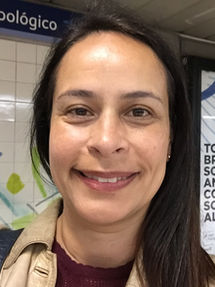About
“Representing oneself and the other: How Eurovision is shaping the perception of countries and cultures”
Since its first edition, the Eurovision Song Contest - or, as it was called then, Grand Prix Eurovision De La Chanson Européenne - has been a stage for multiple representations. Broadcasters, countries, entertainment industries, musicians and artists have represented identities, ideas and values in the Eurovision in various creative ways. Music is an important part of human self-fulfillment and enjoyment, and is also an efficient means to reach out to others and convey particular messages. Therefore, it is no surprise that music has occupied an important place in TV scheduling. From live performances to videoclips, music content is one of the most efficient audience aggregators.
In Europe, public television broadcasting has been used to develop a shared European identity and the Eurovision Song Contest is the best example of how music can create a sense of inclusion and belonging. This is important to consider in the context of the 67th edition of the Eurovision Song Contest, as this year the runner up country of the last edition is hosting the event on behalf of the winner, due to a situation of armed conflict.
This sixth edition of the EUROVISIONS International Conference, held in one of the most symbolic music cities in the world - Liverpool - wants to bring to the center of the discussion how music has the capacity to represent identities, ideas and values in the complex of sound and performance, as well as explore related behaviours and underpinning conceptual frameworks. What are the challenges brought about by representing oneself and others?
EUROVISIONS 2023 is the result of a partnership between researchers from Germany, Portugal, UK and Hope University from Liverpool. Following the work developed in previous editions - Lisbon, 2018; Tel Aviv, 2019; Online (Rotterdam) 2020, 2021; Turin 2022 – the EUROVISIONS conference continues to be a platform for sharing and discussing academic and non-academic thinking about the ESC.
Back in 2023 to a hybrid form, the EUROVISIONS conference will be held on the 9th and 10th May in person at the Hope University, Liverpool, during the ESC week, but also broadcast on YouTube and via the EUROVISIONS social media.
Venue

CAPSTONE THEATRE,
Liverpool Hope University Creative Campus
17 Shaw Street, Liverpool, Merseyside, L6 1HP
Tel: +44 (0)151 291 3578
https://www.visitliverpool.com/things-to-do/the-capstone-theatre-p350641
Can't come in person? Join us online!
People involved in this year's conference
SCIENTIFIC COMMITTEE
Carla Figueira (ICCE, Goldsmiths, University of London, UK)
Irving Wolther (Fachhochschule des Mittelstands Hannover, Germany)
Isabel Campêlo (INET-md, FCSH | NOVA University of Lisbon, Portugal)
João Soeiro de Carvalho (INET-md, FCSH | NOVA University of Lisbon, Portugal)
Manuel Deniz Silva (INET-md, FCSH | NOVA University of Lisbon, Portugal)
Maria de São José Côrte-Real (INET-md, FCSH | NOVA University of Lisbon, Portugal)
Sofia Vieira Lopes (INET-md, FCSH | NOVA University of Lisbon, Portugal)
Tom Sykes (Liverpool Hope University, UK)
ORGANIZING COMMITTEE
Carla Figueira (ICCE, Goldsmiths, University of London, UK)
Gonçalo Antunes de Oliveira (INET-md, FCSH | NOVA University of Lisbon, Portugal)
Irving Wolther (Fachhochschule des Mittelstands Hannover, Germany)
Isabel Campêlo (INET-md, FCSH | NOVA University of Lisbon, Portugal)
Liane Luís (FCSH | NOVA University of Lisbon, Portugal)
Sofia Vieira Lopes (INET-md, FCSH | NOVA University of Lisbon, Portugal)
Tom Sykes (Liverpool Hope University, UK)
Supporting Institutions
Support:
Media partner:

Photos
































































